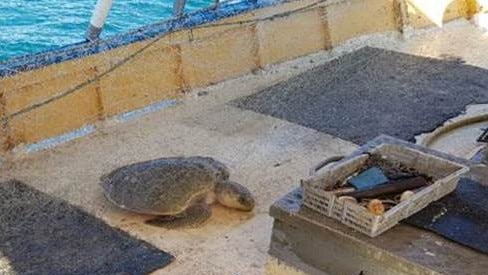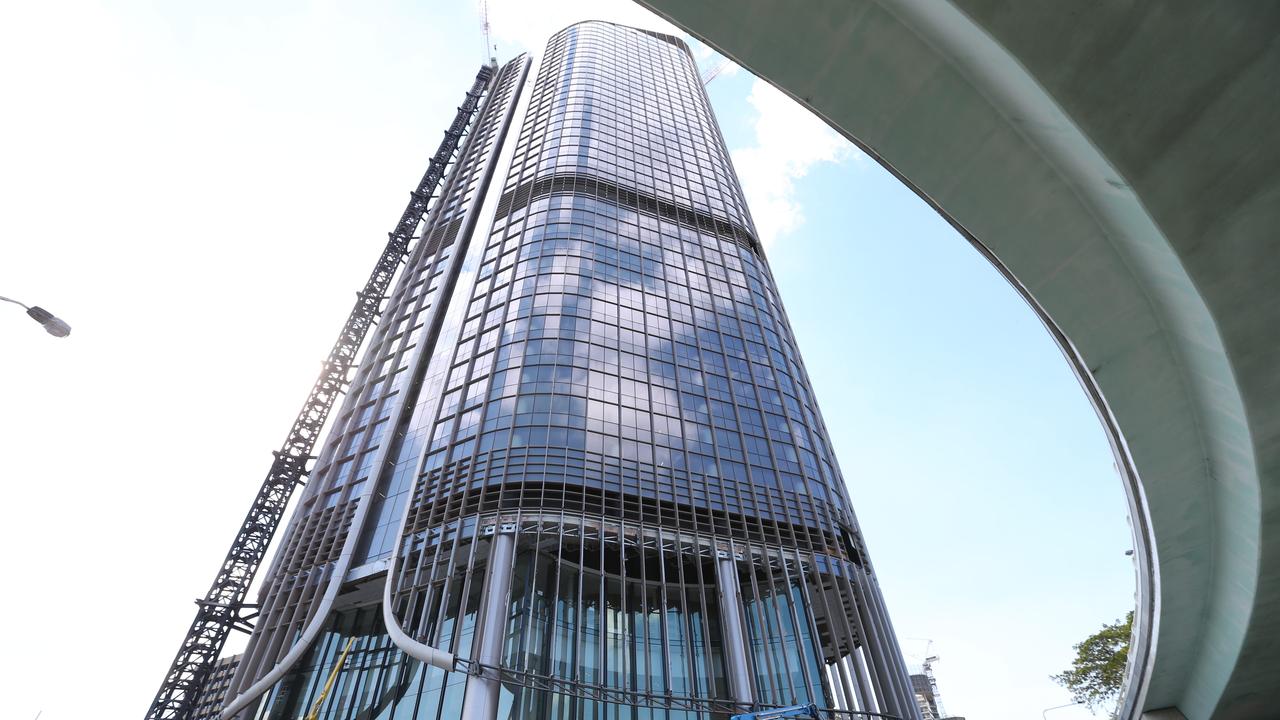Indiscriminate fish killing exposed in leaked photos
Leaked photos of sharks piled waist-high and threatened sawfish on the deck of a fishing boat have sparked calls to create a net-free fishing zone in north Queensland. SEE THE PICS
QLD Politics
Don't miss out on the headlines from QLD Politics. Followed categories will be added to My News.
LEAKED photos of sharks piled waist-high and threatened sawfish on the deck of a fishing boat have sparked calls to create a net-free fishing zone in north Queensland.
The graphic images taken earlier this year on a boat off the central Great Barrier Reef highlight the indiscriminate killing of sharks and other at-risk species in a world heritage area.
Endangered sharks killed by drumlines off Magnetic Island
Endangered sharks killed on drumlines on Great Barrier Reef
Fears speared sharks could have been critically endangered grey nurses
WWF-Australia chief executive Dermot O’Gorman said the photos showed the destructive impact of commercial gill nets when there was worldwide concern about declining shark numbers.
“There is nothing illegal in any of these images and in some ways that makes them more disturbing,” he said.
“These pictures show that gill nets are indiscriminate killers in that they drown whatever swims into them including many iconic and threatened species.”
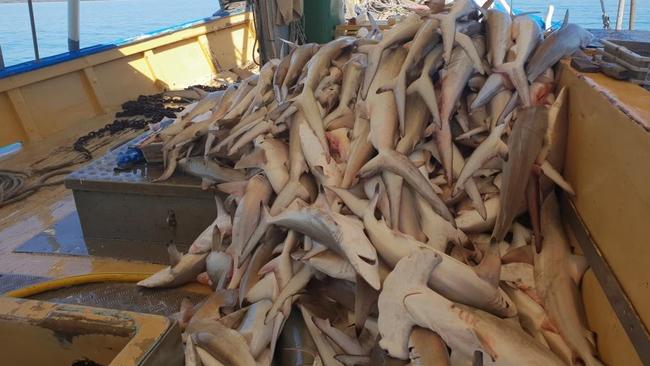
According to Fisheries Queensland data, 125,000 sharks were caught in nets in 2018 with 41,000 discarded and 84,000 processed.
Smaller sharks are prized for their fillets which are sold as “flake” in fish and chips shops.
But larger sharks, which are unsuitable for human consumption, are prized for their fins, which are cut off and exported with the rest of the body discarded.
The pictures also show at least four sawfish, which are the most endangered of all sharks and rays.
The sawfish’s trophy snouts had been cut off.
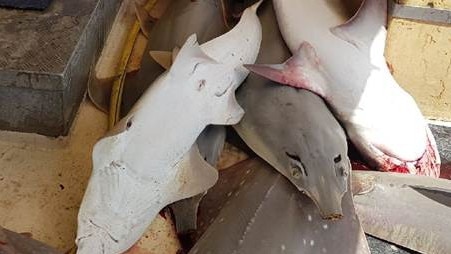
Mr O’Gorman called for the state and federal Government to ban gill nets from north of Cooktown to the tip Cape York to create an 85,000sq km refuge.
The WWF has purchased and retired two of the reef’s five industrial sized gill net fishing licences in the past three years although dozens more smaller licences remain.
Queensland Fisheries Minister Mark Furner said more than 120 netting licences had been removed through buybacks in the past decade leaving less than 200 large mesh net licences on the east coast.
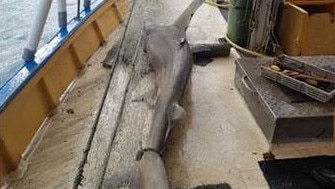
He said the government had proposed a range of reforms to create more sustainable fisheries including splitting the net fishery into regions, introducing quotas or limits on fishing days and reviewing fish size and possession limits.
“There is already an existing catch limit on commercial harvest of sharks, which can be harvested sustainably, particularly smaller, faster growing sharks like black tip sharks,” he said.
“New rules for hammerhead sharks were introduced in January 2018 to further protect hammerheads.”
Federal Environment Minister Melissa Price said the State Government was responsible for Great Barrier Reef Fisheries management.
“In this case we do not know the time, location or circumstances but would be happy to work with the State Government and encourage them to take action in relation to any improper fishing practices in the area should they have occurred,” she said.
Opposition environment spokesman Tony Burke did not respond to requests for comment.
